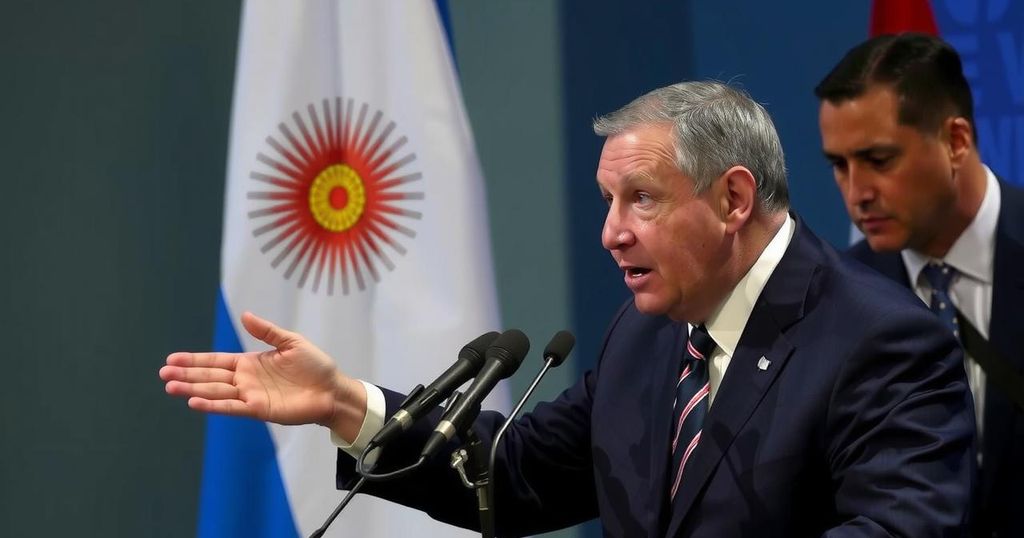Argentina’s President Dismisses Foreign Minister Following Vote Against U.S. Embargo on Cuba

Argentina’s President Javier Milei dismissed Foreign Minister Diana Mondino shortly after the country voted in favor of ending the U.S. embargo against Cuba at the U.N. General Assembly. The dismissal signifies a key shift in Argentina’s foreign policy, which has leaned towards U.S. and Israeli interests since Milei took office.
On Wednesday, July 12, 2023, the President of Argentina, Javier Milei, executed the dismissal of his foreign minister shortly after the country cast its vote at the United Nations General Assembly in favor of lifting the United States embargo on Cuba. Foreign Minister Diana Mondino was officially replaced by Gerardo Werthein, who was serving as Argentina’s ambassador to the United States. According to Manuel Adorni, a spokesperson for President Milei, this change was announced without further elaboration on the motivations behind it. Earlier that day, during the U.N. session, 187 countries supported a resolution that condemned the U.S. economic sanctions imposed on Cuba, with only the United States and Israel opposing the measure. Since coming to office in December 2023, President Milei has notably shifted Argentina’s foreign policy to more closely align with the interests of the United States and Israel. Furthermore, President Milei has openly affirmed his unwavering support for Israeli Prime Minister Benjamin Netanyahu’s administration amidst its military actions in Gaza. This position starkly contrasts with a significant portion of Latin America, where countries such as Bolivia and Colombia have severed diplomatic relations with Israel, and several others, including Brazil, have recalled their ambassadors from Tel Aviv.
The recent dismissal of Argentina’s foreign minister follows a significant vote in which Argentina endorsed a resolution at the United Nations General Assembly aimed at condemning the long-standing U.S. economic embargo on Cuba. Such actions highlight the ongoing tensions in international relations regarding Cuba and the broader geopolitical influences involving the United States and allied nations. The rhetorical shifts under President Javier Milei signal a distinct departure from previous Argentine foreign policies, particularly aligning more closely with U.S. and Israeli interests amid rising conflicts in the Middle East. This episode reflects both domestic and international political dynamics in play, revealing the potential ramifications of foreign policy decisions on governmental stability and diplomatic relations.
In summary, President Javier Milei’s swift dismissal of Foreign Minister Diana Mondino, subsequent to Argentina’s vote against the U.S. embargo on Cuba, underscores the president’s intent to steer the nation’s foreign policy to align with U.S. interests. This move not only reflects a critical juncture in Argentina’s diplomatic relations but also illustrates the president’s positioning in a polarized regional context, particularly regarding relations with Israel and responses to conflicts in Gaza.
Original Source: abcnews.go.com








